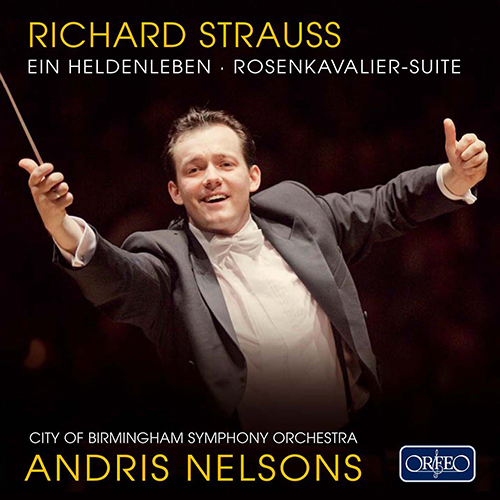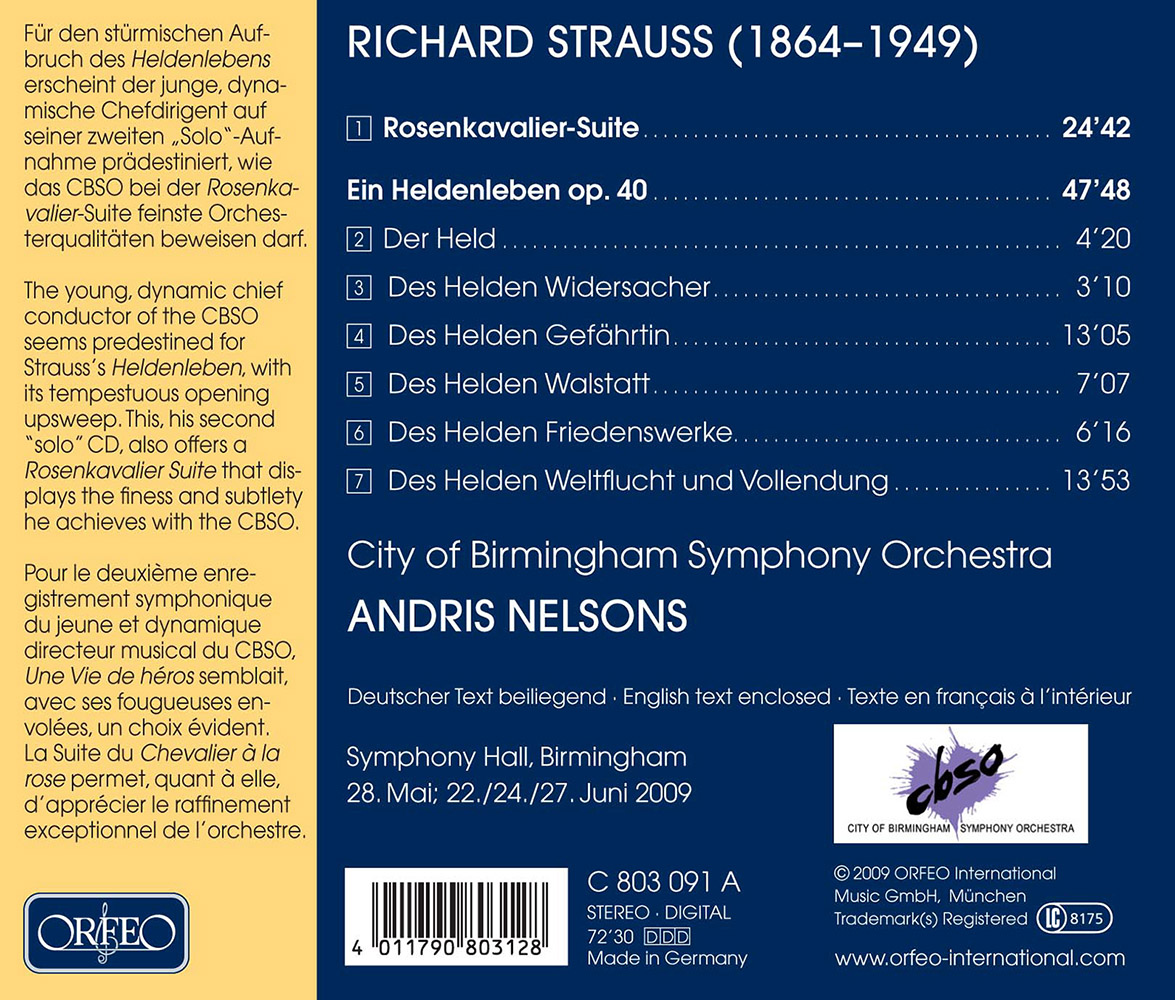Heldenleben
For all its undoubted brilliance, Ein Heldenleben – especially at a first hearing – remains one of Strauss’s most problematical tone poems. Dating from the dying moments of the nineteenth century, it is notable for the late Romantic exuberance of its opening; for the tonally extremely free motifs associated with what are described in the musical programme as the hero’s enemies; for the sweetness and the capers on the solo violin and in the orchestra that characterize the hero’s “companion”; and for the subsequent martial and transfiguring stages in the musical argument. And yet all of this can easily give the impression that the work carries an excessive amount of often autobiographical baggage. What the piece needs is not only a first-class orchestra but also a conductor with a clear sense of the work’s underlying structure, a conductor, moreover, who is able to maintain the tension and respond quickly and consistently to the work’s countless details. This is certainly how Andris Nelsons sees his task, a task that he realizes magnificently in this, his second Orfeo recording with the City of Birmingham Symphony Orchestra. The orchestra and its music director allow the orchestral colours to gleam and ensure that the individual sections that make up the score flow smoothly, sweeping the listener along with them. From start to finish this reading of Ein Heldenleben has such a stringency and rigour that many of the aesthetic objections to the work merely add to our pleasure at individual details, while never calling into question the piece’s overall design. The fact that Nelsons is also a master of the art of transition in the music theatre and can achieve this on the concert platform, too, is clear from his recording of the Suite from Der Rosenkavalier. For listeners familiar with what is arguably the 20th century’s best-known “comedy for music”, the episodes and high points that make up this suite may seem to be no more than paratactically juxtaposed, but under Nelsons’ direction they merge together to create an impression that strikes even the first-time listener as spontaneously compelling and coherent. If Ein Heldenleben runs the risk of luring interpreters in one particular direction before an unexpected turn of events leads them off in another, then this stratagem turns out to be the guiding principle in the Suite from Der Rosenkavalier, providing listeners with delightful surprises and catching them unawares, something that Andris Nelsons and his orchestra take evident delight in doing.

















